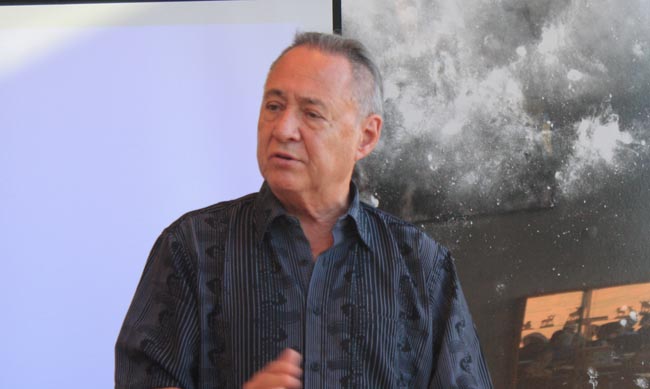Whiteskin owner angry after Blackskin judge cancels Redskin trademark

By Maurice Switzer
For 83 years there has been a professional football team that chooses to name itself after the perceived colour of Native American skin.
Owners of the Washington Redskins claim the team name and stereotypical Indian head logo actually “honour” the people on whose stolen lands their stadium is built.
This is the typical and lame excuse offered for decades by owners and supporters of sports franchises who think that mocking the appearance and customs of indigenous peoples is a clever marketing technique. Major League baseball has the Indians and mascot Chief Wahoo, the Braves and the tomahawk chop cheer. In hockey it’s Chicago’s Blackhawks and their stoic Indian head crest.
Just as children imitate highly-paid sports heroes in their backyard shinny and playground pickup games, so amateur teams have copied the unsavoury promotional gimmicks of their big-league idols. It’s just as racist and offensive to see kids in Copper Cliff playing for teams calling themselves “Redmen” as it is to watch millionaire halfbacks play under the “Redskins” banner.
It’s 2015, for Pete’s sake! Who in their right mind in this day and age thinks it’s acceptable to identify people by the colour of their skin, let alone use that terminology to name teams or other organizations?
What would – and should — happen if the prospective new NHL expansion team from Las Vegas decided to call themselves the “Blackskins” or the “Yellowskins”? Lesser racist slights have resulted in urban riots.
Then this summer an interesting thing happened. After a 20-year legal battle, U.S. district court judge Gerald Bruce Lee – whose skin is black, if that matters to anyone – cancelled protection to the Washington Redskins trademark because he agreed that their team name and logo were seen as “disparaging” by some Native Americans, and defined in the dictionary as “a slur”. Team owner Dan Snyder – whose skin is white, if that matters to anyone – was livid and vowed to never change the team’s name.
The ruling is a good thing, but even better is the fact that a growing number of people seem to want to live in a world where such decisions don’t need to be decided in a court of law.
They just make common, decent sense.
Maurice Switzer is a citizen of the Mississaugas of Alderville First Nation. He delivers public education workshops on First Nations issues and can be contacted at mauriceswitzer4@gmail.com


